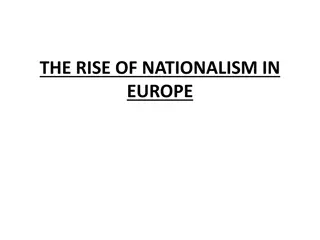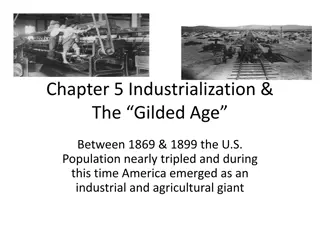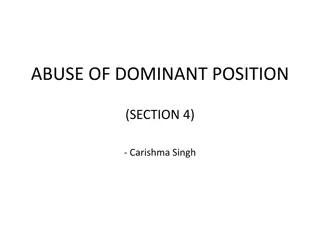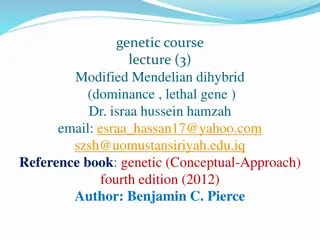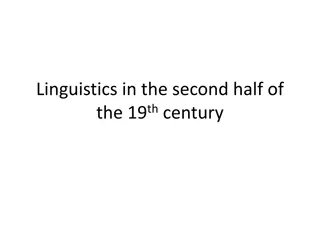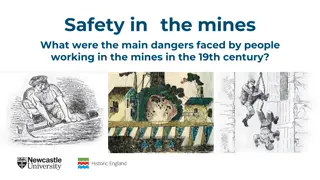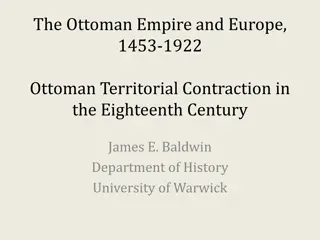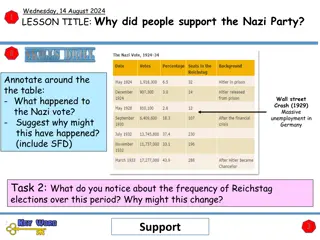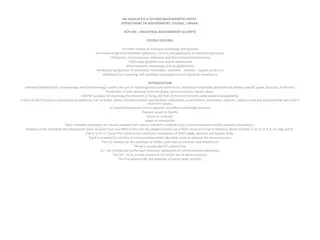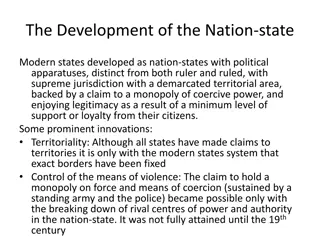Rise of German Nationalism and Industrial Dominance in the 19th Century
German nationalism was bolstered by the Franco-Prussian War victory in 1871, leading to the emergence of the powerful German Empire. With iron and coal resources, a skilled workforce, and a focus on science and technology, Germany became the industrial giant of Europe. Chancellor Bismarck aimed to strengthen the state by suppressing the influence of the Catholic Church and socialists through policies such as the Kulturkampf. Despite initial conflicts, Bismarck eventually sought reconciliation with the Church.
Download Presentation

Please find below an Image/Link to download the presentation.
The content on the website is provided AS IS for your information and personal use only. It may not be sold, licensed, or shared on other websites without obtaining consent from the author. Download presentation by click this link. If you encounter any issues during the download, it is possible that the publisher has removed the file from their server.
E N D
Presentation Transcript
Nationalism Germany Strengthens
German Industrial Giant In January 1871, German princes gathered in the Hall of Mirrors at the Palace of Versailles to proclaim the new German empire German victory in the Franco-Prussian War ended French domination of Europe and the emergence of German domination After unification, the German empire emerged as the dominant industrial giant in Europe
German Industrial Giant Germany possessed several economic advantages Iron and coal resources Disciplined and educated workforce A productive and efficient society Rapidly growing population
German Industrial Giant During the 1850s and 1860s, Germans founded large companies and built many railroads German industrialists were the first to see the value of applied science in developing new products Industrialists and the government supported research and development
The Iron Chancellor As Chancellor, Bismarck wanted to weaken France while forming bonds with Austria and Russia Sought to erase local loyalties and crush opposition to the imperial state Targeted two groups as posing a threat to the new German state: the Catholic Church and Socialists
Campaign Against the Church After unification, Catholics made up about 1/3 of German population Bismarck distrusted Catholics, believing their first loyalty was to the Pope in Rome Bismarck launched the Kulturkampf (battle for civilization) with a goal of forcing Catholics to put loyalty of state above the Church
Campaign Against the Church Bismarck passed laws giving the state the right to supervise Catholic education and approve appointments of priests Closed some religious orders, expelled the Jesuits from Prussia, made it compulsory for couples to be married by civil authority Though his efforts backfired, Bismarck saw his mistake and worked to make peace with the Church
Campaign Against The Socialists Bismarck also saw a threat to the German Empire in the form of the growing socialist movement Bismarck feared socialists would undermine worker loyalty and turn them toward revolution When socialists failed to assassinate the Kaiser, Bismarck passed laws dissolving socialist groups, shut down their newspapers, and banned their meetings
Campaign Against The Socialists Again, repression backfired and workers united around the socialist cause Bismarck changed tactics, passing laws to protect workers and draw them away from socialism By the 1890s, workers had health and accident insurance and provided retirement benefits
Campaign Against The Socialists Despite Bismarck s reforms, workers did not abandon socialism, and by 1912 the Social Democratic party held the most seats in the Reichstag Bismarck s programs did become a model for many other countries in Europe, and proved social conditions could be improved without revolution
Kaiser William II In 1888, William II succeeded his grandfather as Kaiser Extremely confident and wishing to put his own stamp on Germany, in the 1890s he surprised Europe by asking Bismarck to resign Though he was resistant to introduce democratic reforms, his government did provide programs for social welfare
Kaiser William II His government provided cheap transportation, electricity, and an excellent system of public schools Taught students obedience to the emperor, along with reading, writing, and math William II spent lavishly on the military machine and launched a campaign to expand the German navy win an overseas empire





